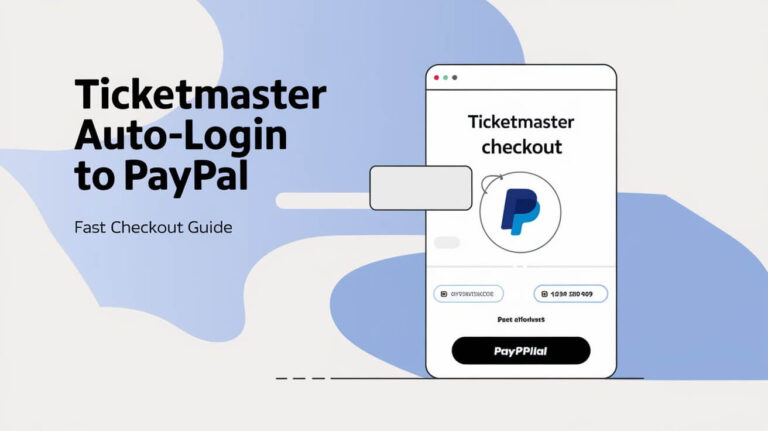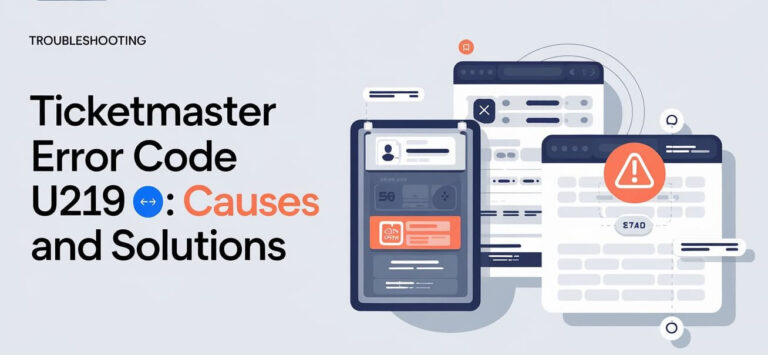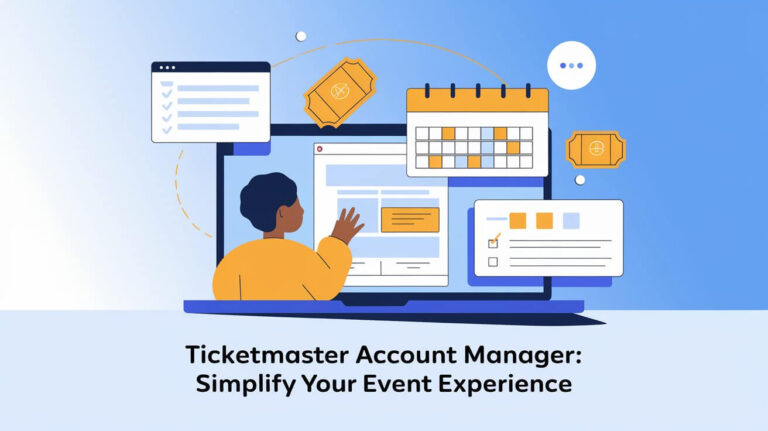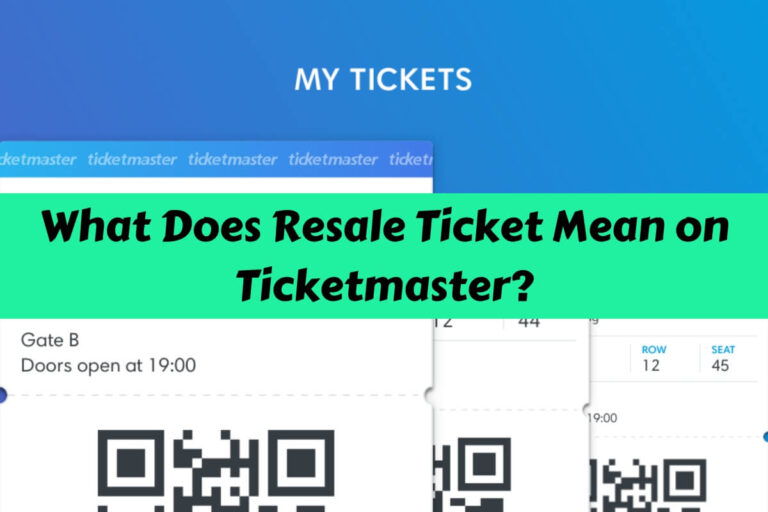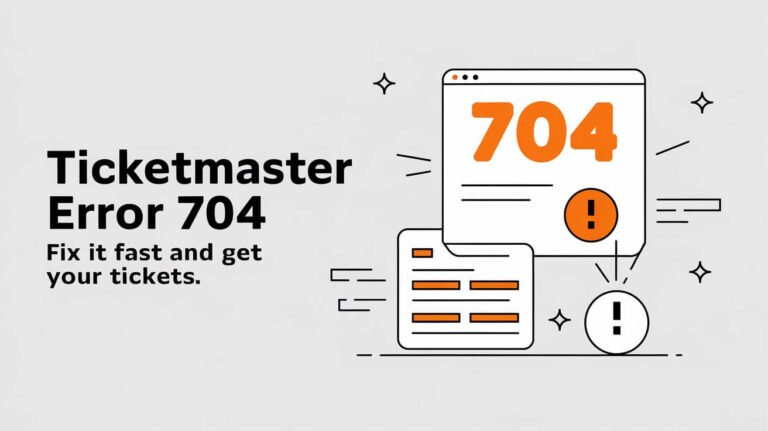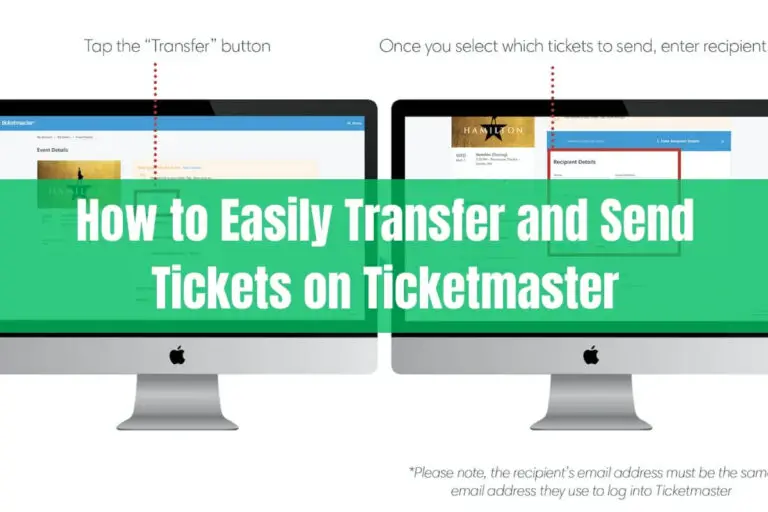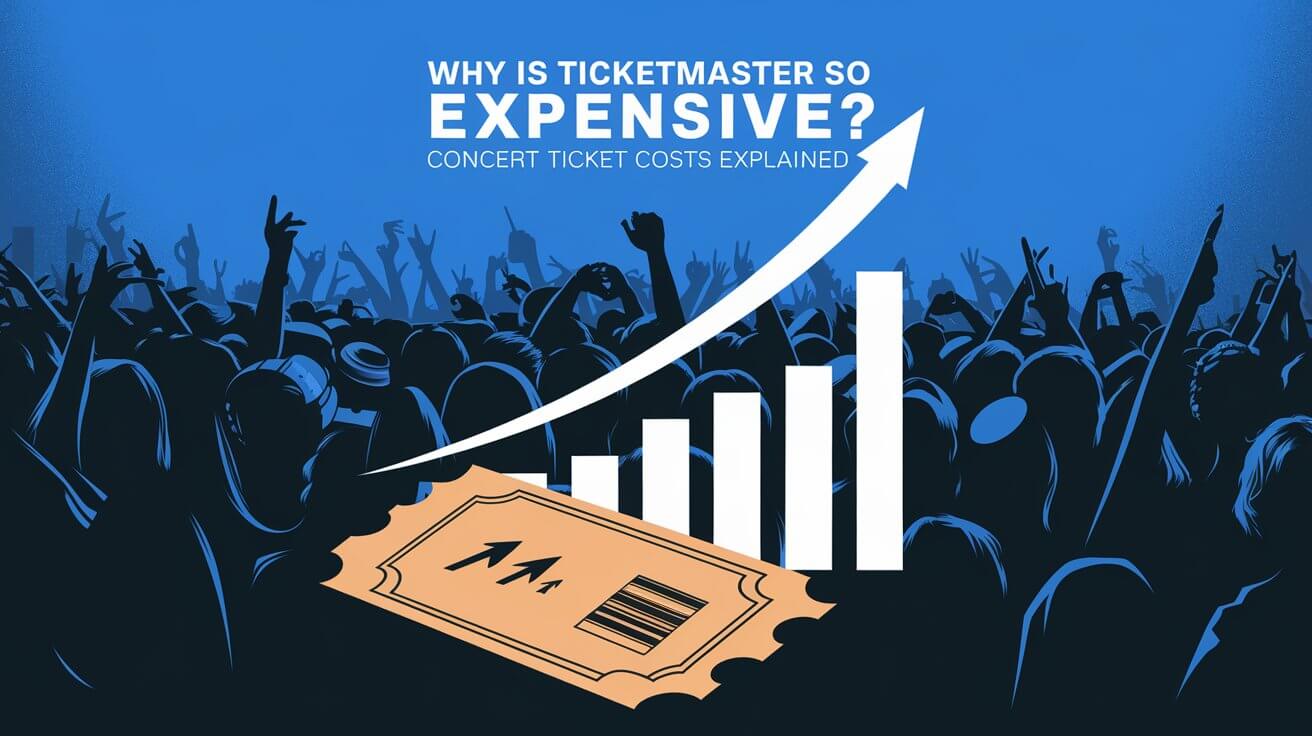
Ticketmaster’s high prices stem from a mix of service fees, dynamic pricing, and market dominance. This article digs into the factors driving up ticket costs, explores alternatives, and offers money-saving tips for concert-goers.
The Ticketmaster Pricing Puzzle
When you’re excited to see your favorite artist perform live, the last thing you want is sticker shock at checkout. Yet, that’s often what happens when buying tickets through Ticketmaster. Let’s unravel why Ticketmaster seems so pricey.
Breaking Down Ticketmaster’s Fees
Ticketmaster tacks on several fees to the base ticket price:
- Service fee
- Facility charge
- Processing fee
- Delivery fee
These can add up to 78% of the ticket’s face value. For a $100 ticket, you might end up paying $178 or more.
The Role of Dynamic Pricing
Ticketmaster uses dynamic pricing, which adjusts ticket prices based on demand. This means popular shows can see sudden price hikes. While it maximizes profits, it often leaves fans feeling frustrated and priced out.
Supply and Demand in the Concert Industry
The basic economic principle of supply and demand plays a huge role in Ticketmaster’s pricing.
Limited Tickets, Unlimited Fans
Top artists often perform at venues with limited capacity. When millions of fans vie for a finite number of tickets, prices soar. Ticketmaster’s system allows them to capitalize on this imbalance.
How Artist Popularity Affects Prices
Mega-stars like Taylor Swift or Beyoncé can command higher ticket prices. Their massive fanbases create intense demand, driving up costs across the board.
The Live Nation-Ticketmaster Merger
In 2010, Ticketmaster merged with Live Nation, creating a entertainment behemoth. This union significantly impacted ticket pricing.
Market Dominance and Its Effects
The merger gave Ticketmaster control over 70% of the ticketing and live event market. With little competition, they can set prices as they see fit.
Lack of Competition in Ticket Sales
Few alternatives exist for large-scale ticket sales. This lack of competition means Ticketmaster faces little pressure to lower prices or improve service.
Hidden Factors Driving Up Ticket Costs
Beyond obvious fees, other factors contribute to Ticketmaster’s high prices.
Presale Tactics and Fan Club Exclusivity
Presales often reserve the best tickets for fan club members or credit card holders. This scarcity can drive up prices for general sale tickets.
The Impact of Scalpers and Resale Markets
Professional resellers use bots to snatch up tickets, then resell them at inflated prices. Ticketmaster’s dynamic pricing model often adjusts to match these higher resale prices.
Artist and Venue Influence on Ticket Prices
It’s not just Ticketmaster setting prices. Artists and venues play a significant role too.
Revenue Sharing Between Artists and Ticketmaster
Artists often get a cut of Ticketmaster’s service fees. This arrangement can incentivize higher fees, as both parties benefit from increased prices.
Venue Agreements and Their Cost Implications
Ticketmaster has exclusive deals with many venues. These agreements often involve upfront payments to venues, which Ticketmaster recoups through higher ticket prices.
The Technology Behind Ticketmaster’s Platform
Running a massive ticketing platform isn’t cheap. These costs get passed on to consumers.
Investing in Anti-Bot Measures
Ticketmaster spends millions on technology to combat bots and scalpers. While necessary, these investments contribute to higher ticket prices.
Maintenance and Development Costs
Keeping the platform running smoothly during high-demand sales requires significant resources. These ongoing costs factor into Ticketmaster’s pricing strategy.
Ticketmaster’s Business Model
Understanding how Ticketmaster makes money sheds light on its pricing structure.
How Ticketmaster Makes Money
Ticketmaster’s revenue comes from various sources:
- Service fees
- Facility fees
- Processing fees
- Resale market fees
This multi-pronged approach allows them to profit at several stages of the ticket-buying process.
The Cost of Running a Ticketing Giant
Operating a global ticketing platform involves substantial overhead:
- Staff salaries
- Technology infrastructure
- Marketing expenses
- Legal fees
These costs contribute to higher ticket prices for consumers.
Consumer Frustrations and Criticisms
Ticketmaster’s pricing practices have not gone unnoticed by fans or regulators.
Public Perception of Ticketmaster’s Pricing
Many fans view Ticketmaster as a necessary evil. They’re frustrated by high fees but often have no choice but to use the platform.
Notable Controversies and Backlash
Ticketmaster has faced several high-profile controversies:
- Taylor Swift’s Eras Tour ticket fiasco
- Bruce Springsteen’s $5000 tickets
- U.S. Senate hearings on Ticketmaster’s practices
These incidents have intensified calls for reform in the ticketing industry.
Alternatives to Ticketmaster
While Ticketmaster dominates the market, alternatives do exist.
Other Ticketing Platforms
Smaller platforms like SeatGeek, StubHub, and AXS offer ticket sales, often with lower fees. However, they may not have access to all events.
Direct Venue Purchases
Buying directly from a venue’s box office can sometimes save you money on fees. This method works best for local events or if you live near the venue.
The Future of Concert Ticketing
The ticketing industry is under scrutiny, with potential changes on the horizon.
Potential Regulatory Changes
Lawmakers are considering regulations to make ticket pricing more transparent and fair. These could include caps on resale prices or limits on fees.
Innovations in Ticket Sales and Distribution
New technologies like blockchain could revolutionize ticketing. These innovations might lead to fairer pricing and reduced scalping.
Tips for Saving Money on Ticketmaster
While Ticketmaster can be expensive, there are ways to save.
Timing Your Purchases
Buy tickets during presales if possible. If not, sometimes waiting until closer to the event date can yield lower prices.
Exploring Different Seating Options
Consider less popular seating areas. Nosebleed seats or obstructed view tickets are often significantly cheaper.
The Complex Reality of Ticketmaster’s Pricing
Ticketmaster’s high prices come from many sources. These include their strong market position, deals with artists and venues, and tech costs. Fans find this frustrating, but it’s how the live music business works today.
Knowing how Ticketmaster operates can help you buy tickets more wisely. Understanding why prices are high lets you find ways to save money.
The ticket-selling world is changing. New rules might come soon, which could change how things work. For now, learn what you can about ticket buying. Look for other options when you can. Don’t let high costs stop you from seeing shows you love.

